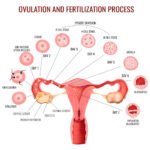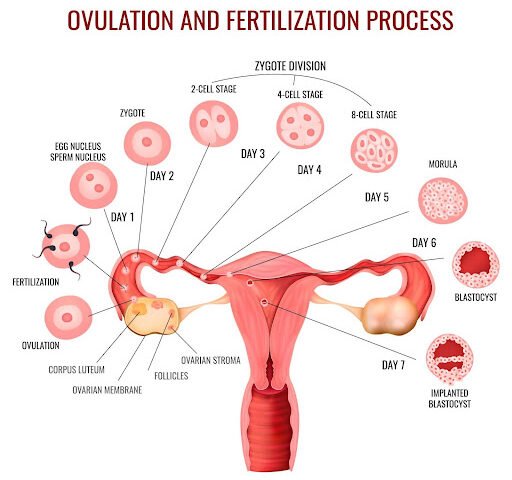
Common Complaints During Pregnancy: Causes of Symptoms, Tips to Deal with Them
December 19, 2024
ओव्यूलेशन क्या है और यह प्रजनन क्षमता को कैसे प्रभावित करता है?
December 25, 2024When it comes to planning for a baby, understanding ovulation is a crucial first step. Ovulation plays a vital role in fertility and conception. But what exactly is ovulation, and why is it so important? Let’s explore!
What is Ovulation?
Ovulation is the process in which a mature egg is released from one of the ovaries. This typically happens once in each menstrual cycle, around day 14 in a 28-day cycle, but the exact timing can vary for every woman. The egg travels down the fallopian tube, where it awaits fertilization by sperm.
Hormones like estrogen and luteinizing hormone (LH) regulate this process. A surge in LH signals the ovary to release the egg, which is then viable for fertilization for about 24 hours.
Why is Ovulation Important for Fertility?
Ovulation determines the “fertile window” of a woman’s menstrual cycle. This window includes the five days leading up to ovulation and the day of ovulation itself. During this time, the chances of conceiving are at their peak. Sperm can survive in the female reproductive tract for up to five days, which means having intercourse during the fertile window increases the likelihood of fertilization.
If ovulation does not occur (a condition known as anovulation), natural conception becomes impossible without medical intervention.
Signs of Ovulation
Learning to recognize the signs of ovulation can help couples plan their pregnancies better. Common signs include:
- Changes in Cervical Mucus: The mucus becomes clear, stretchy, and similar to raw egg whites.
- Slight Increase in Basal Body Temperature: A subtle rise in body temperature occurs after ovulation.
- Mild Pelvic Pain (Mittelschmerz): Some women feel slight pain or cramping during ovulation.
Factors That Can Affect Ovulation
Certain factors can disrupt ovulation and affect fertility, including:
- PCOD/PCOS: Hormonal imbalances can delay or prevent ovulation.
- Stress: Chronic stress can interfere with the hormonal signals that trigger ovulation.
- Lifestyle Issues: Poor diet, lack of exercise, and being underweight or overweight.
How to Track Ovulation
Tracking ovulation can help women identify their fertile window. Some effective methods include:
- Ovulation Prediction Kits (OPKs): These test for an LH surge in urine.
- Monitoring Menstrual Cycles: Apps or calendars can help track cycle days.
- Observing Physical Signs: Paying attention to cervical mucus and body temperature.
Conclusion
Understanding ovulation is an essential step for couples trying to conceive. By identifying the fertile window and addressing factors that may disrupt ovulation, couples can improve their chances of success. If you’re facing challenges with ovulation or fertility, seeking medical guidance can make all the difference. If you have questions about ovulation or fertility, we’re here to help! Visit our clinic or book an appointment at 9453951849. Let us guide you on your journey toward parenthood.









